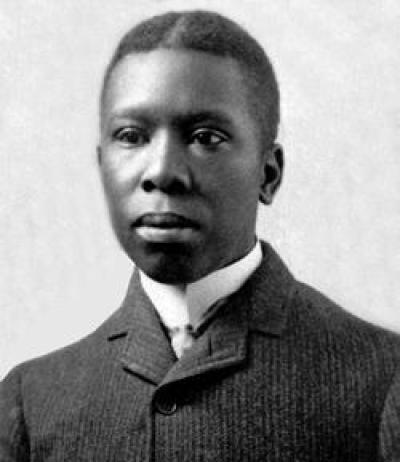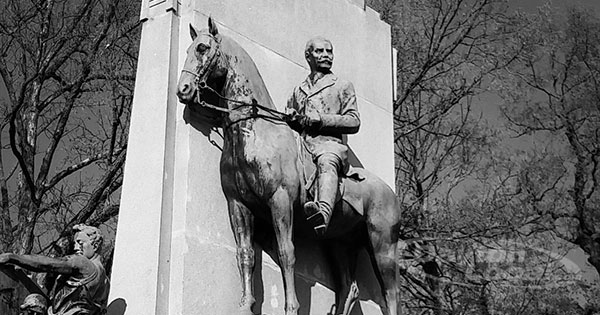
Northmont High School student Jaylin Paschal offers a "modern day" interpretation of a few Dayton native Paul Laurence Dunbar poems.
Modern Day Dunbar
A collection of 19th century Paul Laurence Dunbar poems, with 21st century interpretations.
Originally published 6/24/2016
Dayton native Paul Laurence Dunbar wrote poems and stories that not only pushed the boundaries of the 19th century literature, but that have also remained relevant because of the timeless subjects of humanity and the heavy focus on social issues.
“Sympathy” - I know what the caged bird feels, alas!
Born in 1872, Dunbar lived in a time of racial prejudice and institutionalized racism. His parents were escaped slaves with the harsh experiences of slavery not far behind them. Dunbar was a student at the all white Dayton Central High School and witnessed the cruelties of a racist America. When all of this is considered, it is not difficult to understand how or why Dunbar was sympathetic with caged birds. He knew what it was like to dream of freedom, and long for a life without the cage-like boundaries that racism set in place.
Today, “Sympathy” still touches readers everywhere. Basic civil rights, like gay marriage, are still being fought for. Racial tension and prejudices still exist, and are evident in incidents like shooting of 12-year-old Cleveland citizen Tamir Rice and the Staten Island Eric Garner case that both happened just in 2014. Women are still making less money than men for doing the same job. Minority groups are still under the pressure of institutionalized oppression; still singing of freedom.
“Sympathy” will always be adored by all who read it, and will always be cherished by anyone who has ever longed to exist outside of their own cages.
“Accountability”- Folks ain’t got no right to censuh otha folks about dey habits
In one of my favorite poems, “Accountability,” Paul Laurence Dunbar explains how God made everyone differently and stresses the idea of acceptance and a world free of judgment. Dunbar’s frequent and outstanding use of figurative language, a conversational tone, rhetorical devices, and especially dialect in his poetry set him apart from other writers just as much as his skin color did. In the literary world Dunbar was both criticized and praised because of his differences. Some disliked Dunbar’s dialect poetry, which he was most known for, because they felt like it perpetuated negative African-American stereotypes. Others celebrated his work. His poems were published in local newspapers like high school friend Orville Wright’s Dayton Tattler and major papers like The New York Times.
Today, people are still being judged for their quirks, flaws, and differences. Not too far from us, Cincinnati teenager Leelah Alcorn committed suicide after not feeling accepted when coming out to her parents as transgender. Far too often there are instances of people being taunted and terrorized for expressing themselves.
Although the poem is light spirited, the message in “Accountability” is one that should be understood by everyone: We is all constructed diff’ent, d’ain’t no two of us the same.
“Douglass” – Ah, Douglass, we have fall’n on evil days
In “Douglass,” Dunbar writes to Frederick Douglass, an associate of his, explaining the horrors of American society and longing for the strong, impactful leadership that Douglass and other abolitionists offered. Dunbar felt as if there were still freedoms to be fought for, and in a time after leaders like Douglass but before leaders like Dr. Martin Luther King Jr., the movement towards true equality was at a stand still of sorts. There was a mutual sense of respect between Dunbar and Douglass, as Douglass described Dunbar as “the most promising young colored man in America.”
Today, social reformation movements all across the world are looking for leaders. Most of the social changes these days are being pushed through by the youth, who often lack the clarity and guidance that someone like Douglass could provide. These young revolutionaries often feel like they need one voice to inform, encourage, and unify the people of the movement. They too cry out to leaders of the past, wishing they could help. Just as Douglass had faith in Dunbar, more modern icons have expressed faith in the youth. “As older people, we have to learn how to take leadership from the youth,” said Angela Davis.
Analyzing Dunbar’s poems and the inspiration behind those poems leads one to an understanding of how truly timeless his work was. Paul Laurence Dunbar was able to examine his own life and surroundings and write poetry and stories that would still be relevant over a century later. Dunbar was just one of many Dayton natives who would make a huge impact on the world, as he is listed along side the Wright brothers.
















